Let's take a moment to look at how people demanding "technology" be me humane weirdly only focus on programmers and exclude designers--the real party to blame for the attention economy--by looking at the content from:
humanetech.com/youth/the-atte…
humanetech.com/youth/the-atte…

The site's goal is to "catalyze a more humane future", which is actually a great thing, but by focusing entirely on programmers, managers, and CEOs they exclude designers. This is done because design is categorized as "art" and art is considered a "humanity" in American culture. 
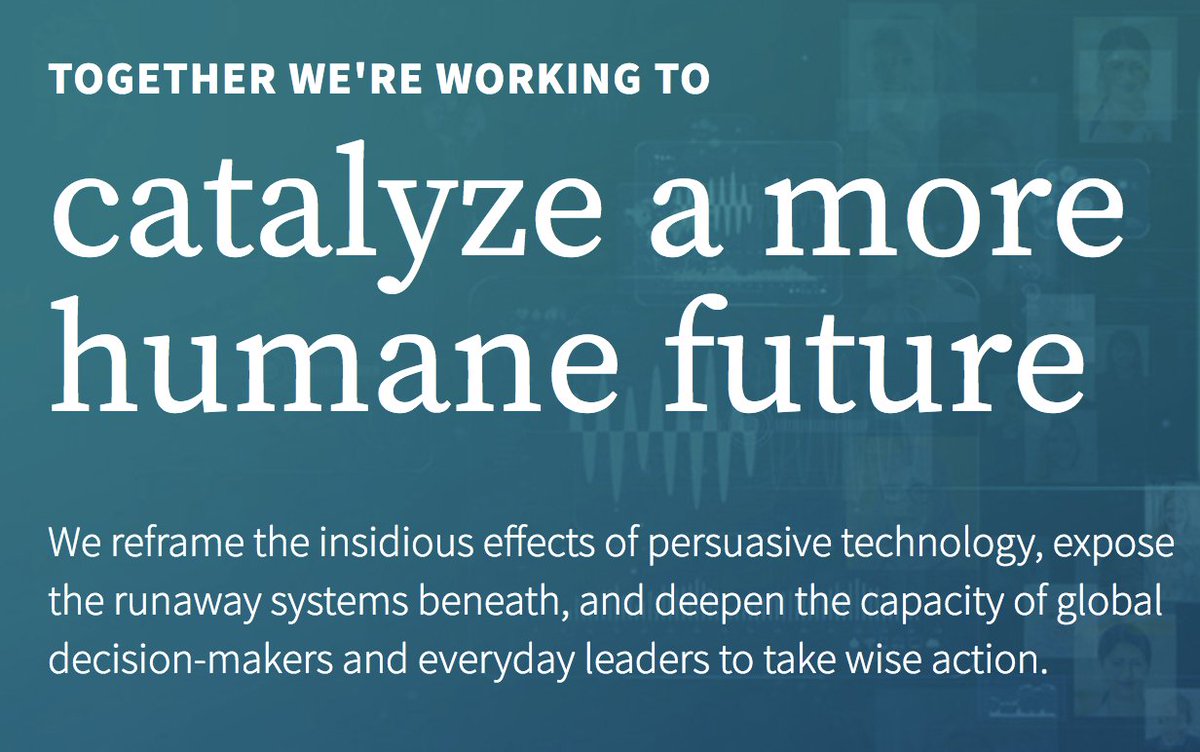
Artists are viewed as sort of a religious class, and in American culture criticizing the Church and religious figures is considered wrong. Even if someone isn't Christian, you'll find some religious figure they consider an authority you can't criticize. Art is that authority.
When you look through their on the Attention Economy (humanetech.com/youth/the-atte…) it's actually not saying anything incorrect. Social media companies *do* work this way, it is a problem, people should be educated about it.
The evil lies in how they word who to blame.
The evil lies in how they word who to blame.
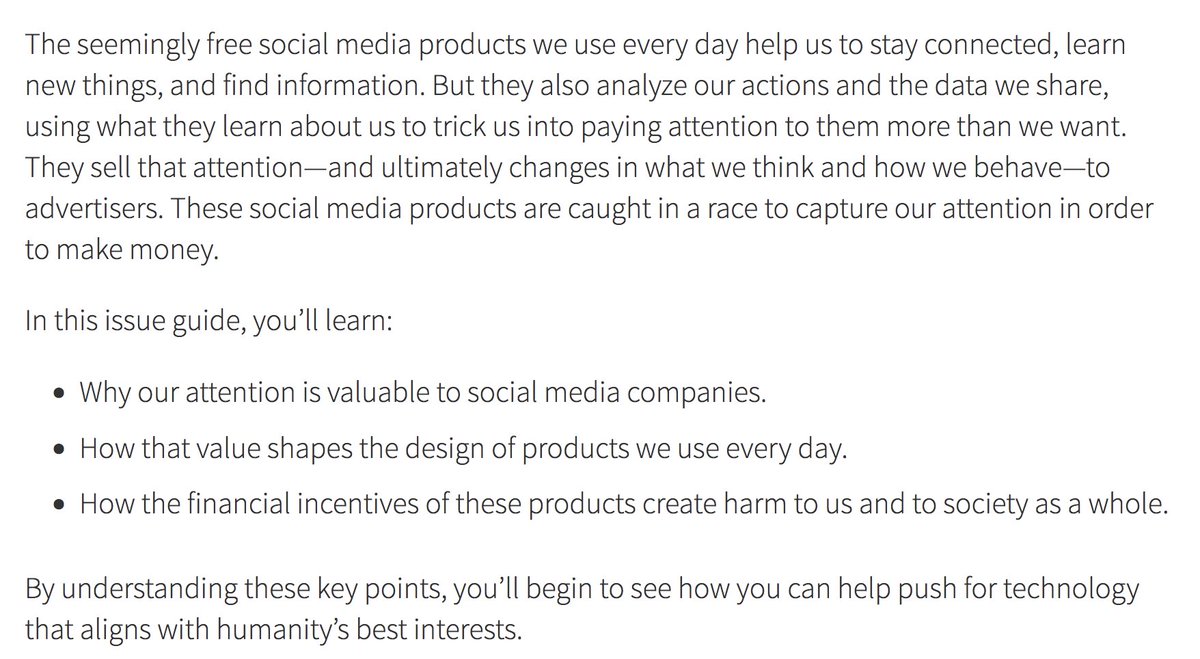
You start to see the first "hint" at who to blame in right away. "Artificial Intelligence", "precise, personalized profiles", all of that hints at the technology, the code, backends, with no mention of corrupting user interfaces that allow *access* to them. 
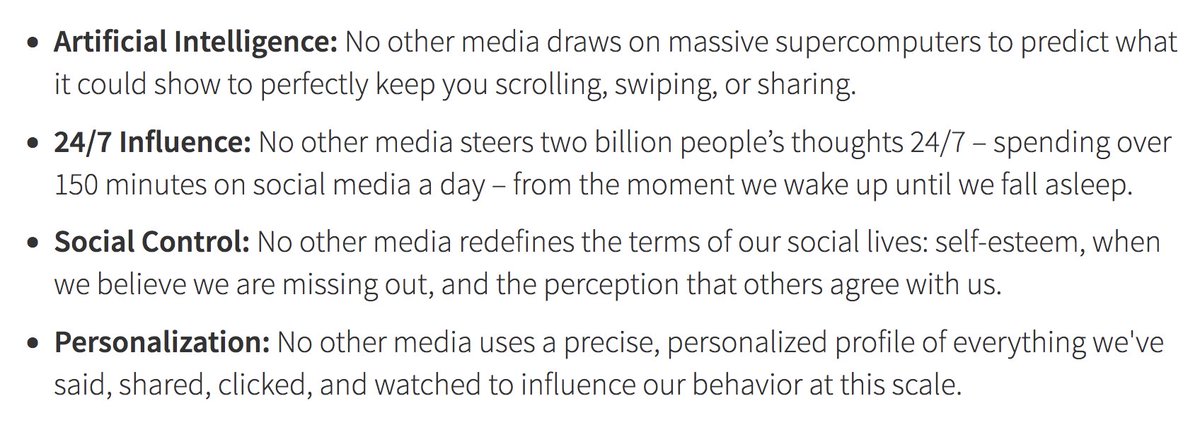
The rhetoric then starts to gradually up the idea that programmers are to blame. Question 2 talks about how you apps are motivated to be persuasive to "collect data", with no mention of the use of design to do this very thing, then at the end "Apps feed this to algorithms"... 
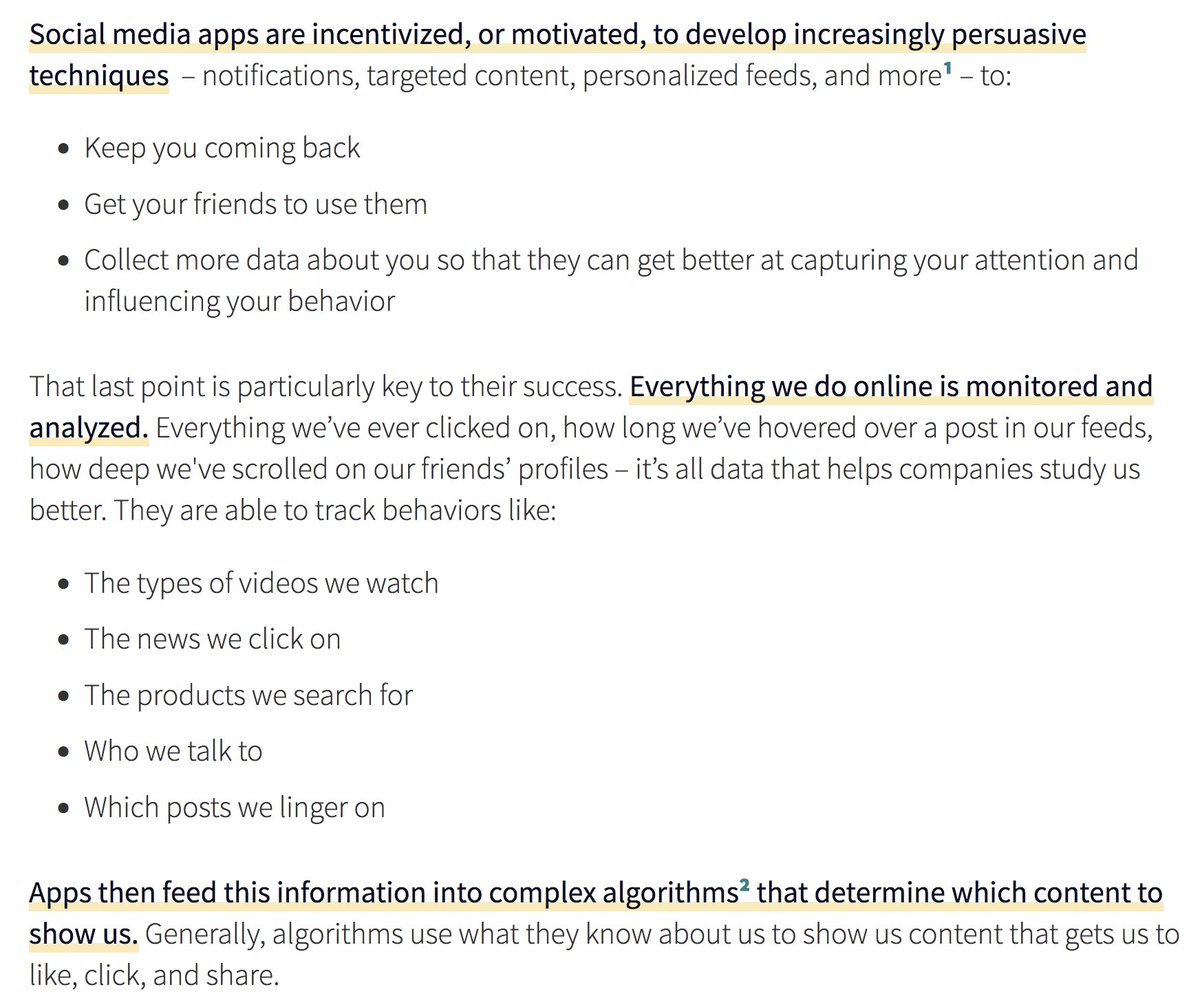
No mention of dark patterns, user interface designed to feed dopamine, the literal billions spent on optimizing only a single button to increase engagement.
It's only "algorithms"...written by programmers to collect data analyzed by programmers to...change the design.
It's only "algorithms"...written by programmers to collect data analyzed by programmers to...change the design.

There are many opportunities where they can mention "user interface", "designers", but they fail. They talk about how ads can be targeted, but fail to mention that targeting only works if a designer makes it work. It's "technology", but only programmers make "technology"? 
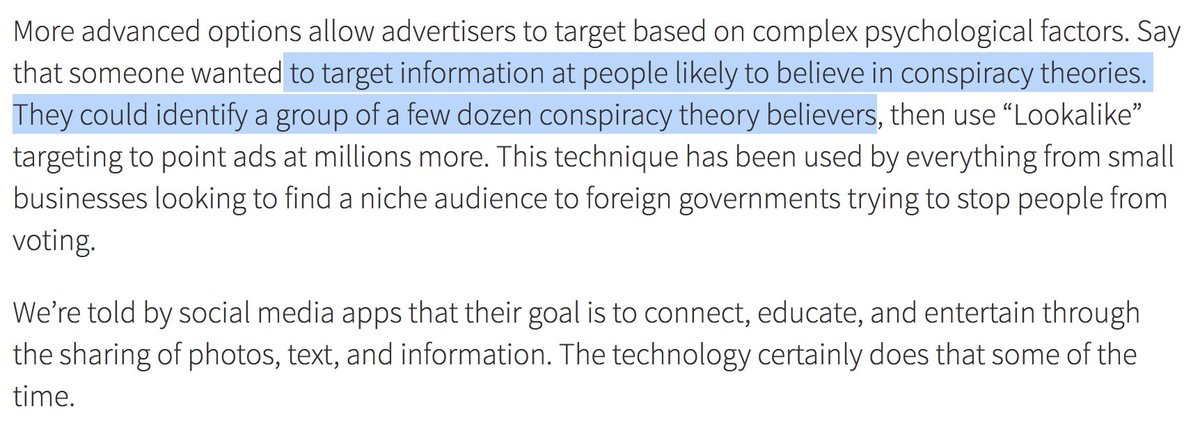
Then again, they come so close "media apps are in a race for our attention...tend to promote more provocative content..." Yes, that's correct, but how *does* an app do that? Not with its user interface lovingly crafted by a team of designers.
Nope, it's "ALGORITHMS!"
Nope, it's "ALGORITHMS!"

Even in the middle of that they dance around designer's entire work product.
"keep us liking" -- design
"and scrolling" -- design
"show us stuff" -- design
"hide everything else" -- design
"hyperbolic language" -- design
"enhanced by filters" -- design
"more frequency" -- design

"keep us liking" -- design
"and scrolling" -- design
"show us stuff" -- design
"hide everything else" -- design
"hyperbolic language" -- design
"enhanced by filters" -- design
"more frequency" -- design

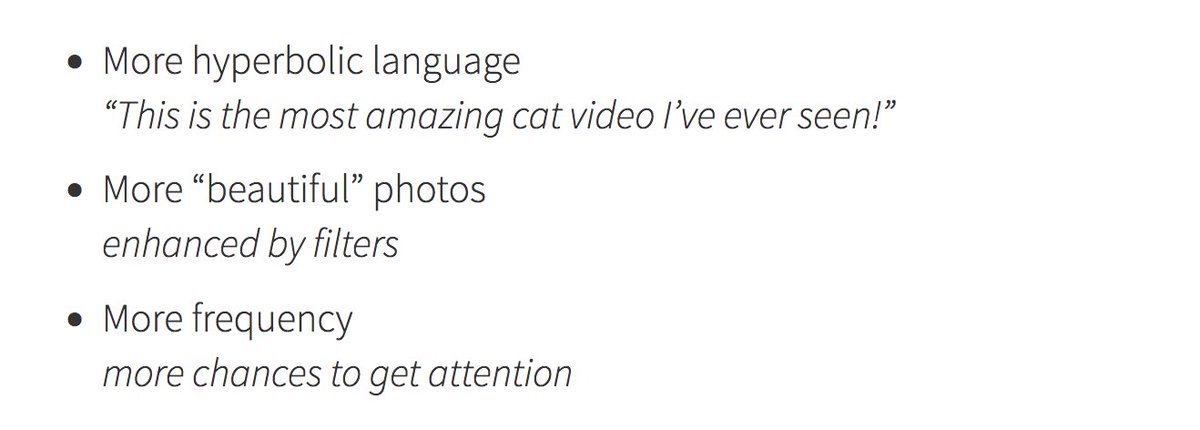
Then they make the final rhetoric twist to equating the algorithm to the design:
"The algorithm doesn't show you everything..."
"The Algorithm" doesn't show you anything.
The Design does.
"The algorithm doesn't show you everything..."
"The Algorithm" doesn't show you anything.
The Design does.

Then we get the story of Morgan, a 14 year old who's a victim of the Algorithm (not the design), which is followed with the call to action, the call to destroy "our" collective enemy, the system that produces these stories...but...who makes this system? Designers? CEOs?
Nope.
Nope.
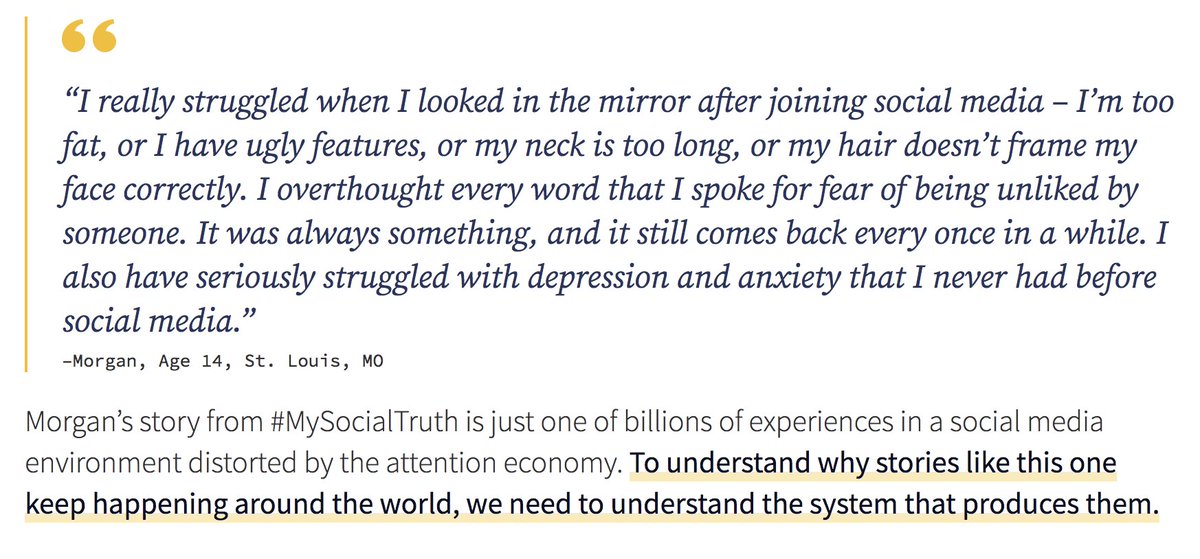
This is masterful propaganda. It starts with a truth--social media IS detrimental to people and designed that way. It creates an identity (the "us) with Morgan's story. It then says the "system has harmed us in countless ways."
We need now a them to hate. Who will it be?
We need now a them to hate. Who will it be?

It then stacks the harms against us by "the algorithm", but "the system", which is never touched by a designer. Never managed by a manager. All of these harms are even more impactful because they *are* actual harms.
The lie comes next. The twist is the next line. The enemy is...
The lie comes next. The twist is the next line. The enemy is...

It's not designers making the same money.
It's not product managers making more.
It's not the privileged CEOs worth billions.
The enemy is "privileged engineers!" They're racist, sexist, homophobic, ableist evil people who destroy the young with their apps and algorithms.
It's not product managers making more.
It's not the privileged CEOs worth billions.
The enemy is "privileged engineers!" They're racist, sexist, homophobic, ableist evil people who destroy the young with their apps and algorithms.

The sad truth is, most of what this project claims about the harms of social media is valid. The problem is they've clearly crafted a propaganda vehicle that motivates people to attack and vilify programmers while ignoring designers, and I believe designers are *more* guilty.
More importantly, they're hypocritical because their own list of evils mentions propaganda and systemic oppression, and then they quite literally have crafted a masterful piece of propaganda to motivate people to attack only programmers as the cause of the problems. 

Within every fascist regime, you'll find designers making the posters. You'll find movie directors crafting the propaganda films. You'll find the art professions involved in every genocide in human history.
According to Humane Tech, it's not designers, it's racist programmers.
According to Humane Tech, it's not designers, it's racist programmers.

The question I would post to people who believe only programmers are complicit is this:
How can you say programmers are the ones causing all the evil, and then also say programmers just "sit around changing the size of buttons"?
Either they're in charge, or they're not.
How can you say programmers are the ones causing all the evil, and then also say programmers just "sit around changing the size of buttons"?
Either they're in charge, or they're not.
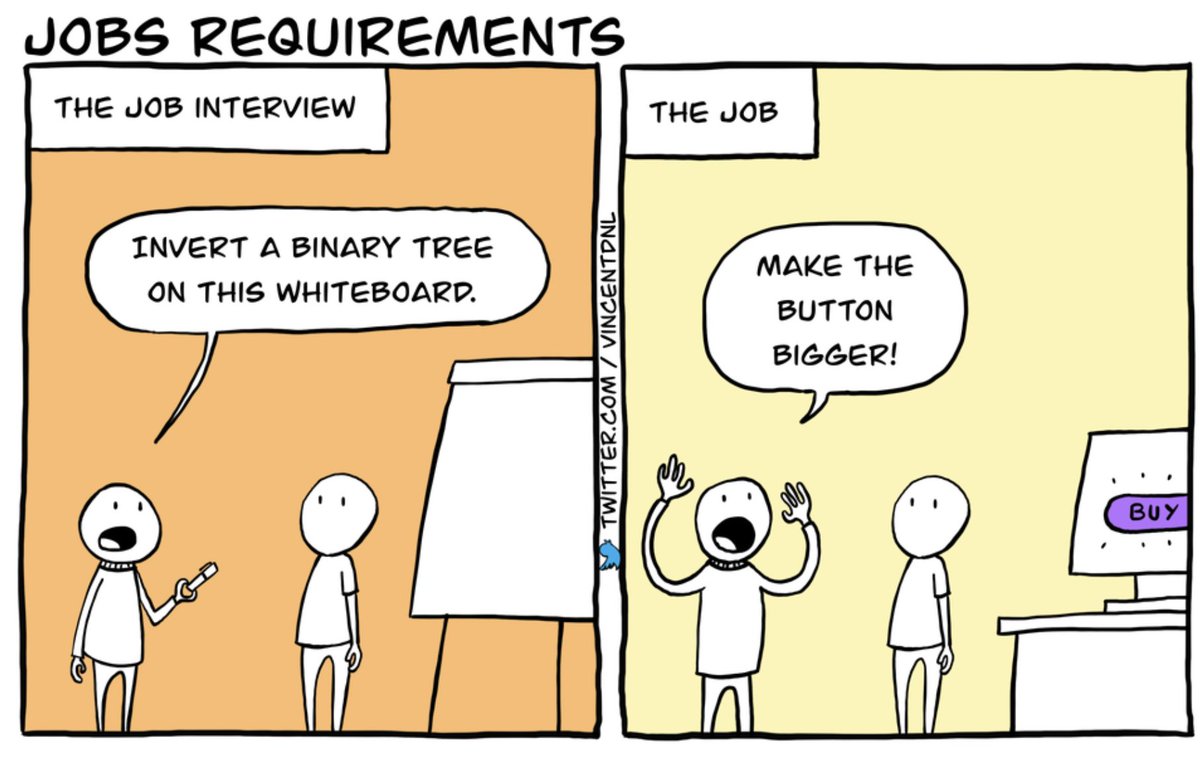
• • •
Missing some Tweet in this thread? You can try to
force a refresh











